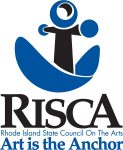Michele Meek’s meditative documentary The Impermanence of Everything delves into the fleeting nature of all things through the metaphor of creating beautiful, elaborate, and ultimately ephemeral works of art.
This film has received two grants—from the Rhode Island State Council on the Arts and from the Center for the Advancement of Research and Scholarship at Bridgewater State University.
Through the film, Meek explores our desire to preserve and perpetuate (i.e. make permanent) historical works of art. In Rome, remnants of a thriving ancient artistic culture remain spread throughout the city, and great efforts are taken to rescue, restore, and memorialize these works. And yet a certain futility necessarily exists—architectural structures weaken and artworks fade over time. Even works that are preserved nonetheless inevitably change over time.
In the film, Meek also recognizes a reverse force in artists who create intentionally transitory works such as sculptors who work with naturally decomposing materials like leaves and sticks and street artists whose work can be erased in hours. In many ways, these artists accept impermanence, creating art while embracing the fact that their work will be erased, destroyed, or eroded. Yet, at the same time, many of these works are “preserved” through photographs—yet another medium that, in actuality, might only provide an illusion of permanence.
Ultimately the film ponders questions like: what drives humans to make and preserve art, and how might the fleeting nature of art help reveal the impermanence of everything?
For more information about the film or to get involved, contact Michele.
Research Reel from Berlin, Germany:
Research Reel Credits: Director/Producer: Michele Meek; Camera: Serge Siro; Music: “Berlin Wall” by Gun ShmiFF and “Meditation” by MusicStuffs
Special thanks to the Supporters of this film project
Funding provided in part by a grant from the Rhode Island State Council on the Arts, through an appropriation by the Rhode Island General Assembly, a grant from the National Endowment for the Arts and private funders.
This project has also been partially funded by a Faculty/Librarian Research Grant via the Center for the Advancement of Research and Scholarship at Bridgewater State University.

